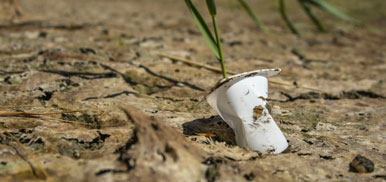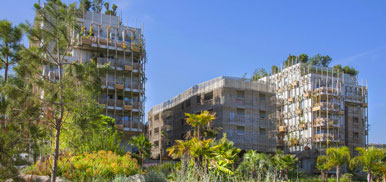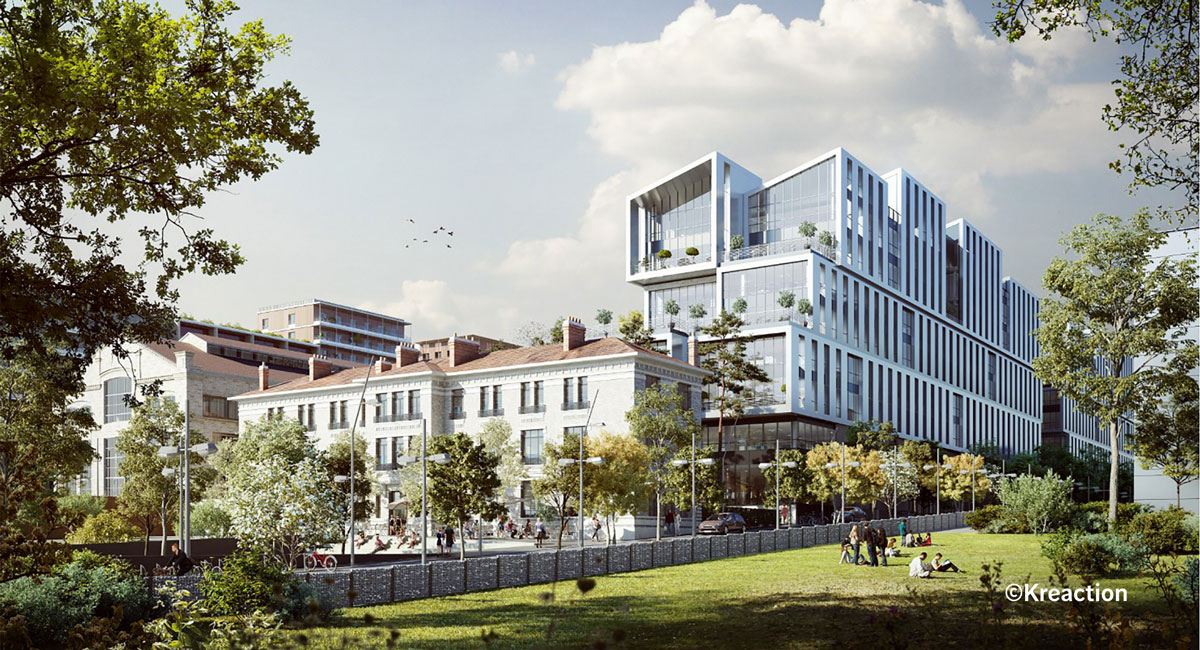
Deserted stadiums, derelict warehouses, century-old buildings and unused factories: here are a few examples of buildings that are being given a new lease of life – and limiting soil sealing and urban sprawl.
Urban space recycling involves reviving vacant or abandoned buildings, car parks or industrial plants. It is one step towards the no-net-land-take objective in France’s Climat et Résilience law, which explicitly aims to limit human action on soil in order to push back against biodiversity erosion, declining crop yields and global warming.
“With the no-net-land-take goal, architects need to go for urban recycling projects more than ever before.”
Manuelle Gautrand, architect.
A thermal power plant becomes a fitness centre for athletes in 2024
People who live in Saint-Denis can’t miss the Universeine project, where preparations for the world sports highlight in Paris in 2024 are in full swing.
Following rehabilitation, a closed-down power station built in the early 20th century to supply electricity to Paris’s metro system, will provide temporary accommodation for sportspeople. It will have 6,000 beds and about 33,000 sq. metres of amenities and work areas for athletes and para-athletes from around the world.
This overhaul will shine a spotlight on the building’s industrial past by keeping and refurbishing several of its features. . For instance Halle Maxwell, the building that housed the power station: “It is 200 metres long and, in the summer of 2024, will be a fitness, service and information centre for the athletes and provide a work space for the sports delegations,”, says Julie Bosch, the Universeine project director at VINCI Immobilier.
Pavillon Copernic, the building next door where the power station’s engineers once worked, will be a reception centre for the journalists covering the sports events.
Then a new chapter will begin: the Universeine development project was designed by VINCI Immobilier, in partnership with Solideo (the French Olympic delivery authority), Saint-Denis city council and the Plaine Commune conurbation, to be repurposed. In the fourth quarter of 2024, Universeine will be converted into an environmentally-friendly mixed-used neighbourhood: the accommodation facilities and service areas used that summer will for example become offices for Interior Ministry staff. Three-quarters of the materials used to build the facilities for the temporary phase will be dismantled to be reused or recycled.
Universeine is essentially a full-size demonstrator for urban space recycling.
Football stadiums become homes
World cups and other international tournaments are big highlights for sports fans and opportunities for diplomatic talks. They also spur large construction projects that sometimes serve no purpose once the events are over. Three run-down football stadiums built in the 20th century – Stade du Ray in Nice, Ninian Park in Cardiff and the stadium in Highbury, London, have been revamped– a fairly unusual afterlife for this type of infrastructure. The stadium in Cardiff has become a residential neighbourhood. The one in Highbury has been turned into a housing complex and the pitch is now a park. And the stadium in Nice along with its car park have become residential units with green roofs and façades. “The hard part was to blend the project back into the rest of the city. A stadium takes up a great deal of land, and a neighbourhood needs to have a more intimate, less grandiose, feel,”explains Jean Malmassari, deputy director for the Mediterranean region at VINCI Immobilier.
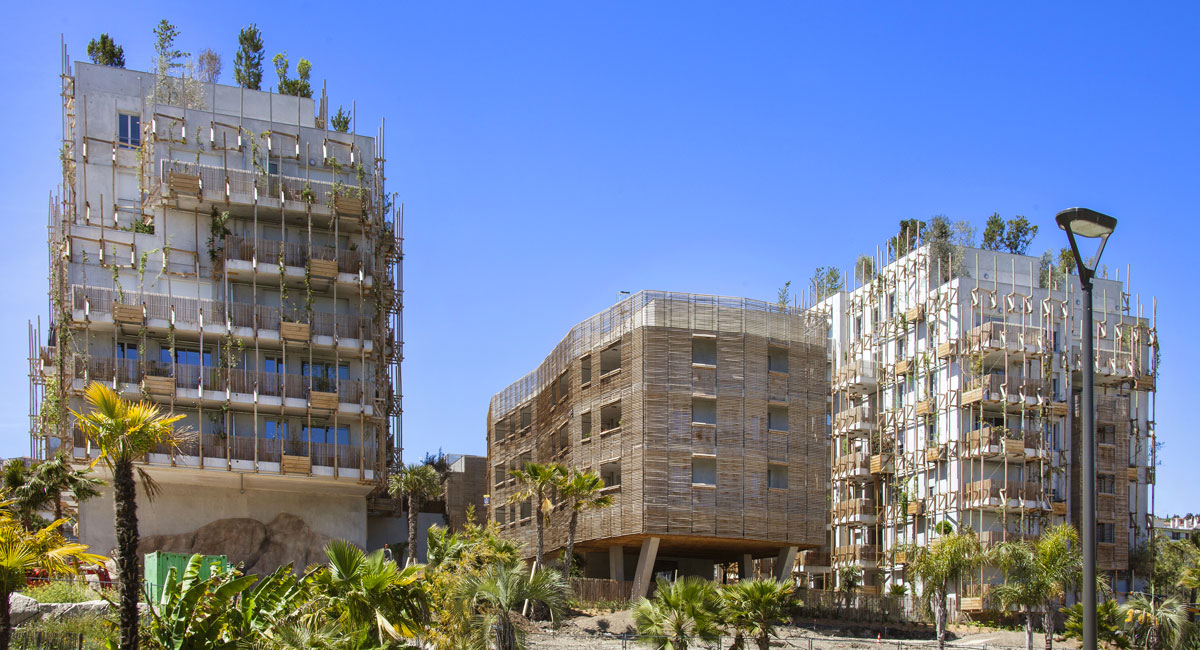
Copyright : Patrick Berlan The Nice Le Ray© development programme
A tractor factory becomes a digital campus
We wanted to see Vierzon and we saw its digital campus! This city is known for its industrial past and was proud to be home to Société Française, a national tractor manufacturer, for decades. But then its vast workshops lay abandoned for 20 years. The revamp started in 2005, with a cinema, convention centre and bowling alley. The spot’s industrial past also appealed to Ledger, France’s cryptocurrency unicorn, which set up its campus there. It includes a school for up to 1,000 students and a start-up incubator, which will open at the end of 2023.
An industrial plant becomes a mixed-use development
Some industrial companies walk away from their factories instead of paying to clean up the soil under them (which they are required to do by law). The Nuances development in Toulouse is a first in Occitanie: to refurbish a plant that once made electronic components, its owner opted into a third-party scheme whereby a property developer, for instance, takes over the liability and remediates the plot. The first housing units in the Nuances project, which has aptly been described as an urban village, were handed over in 2021.
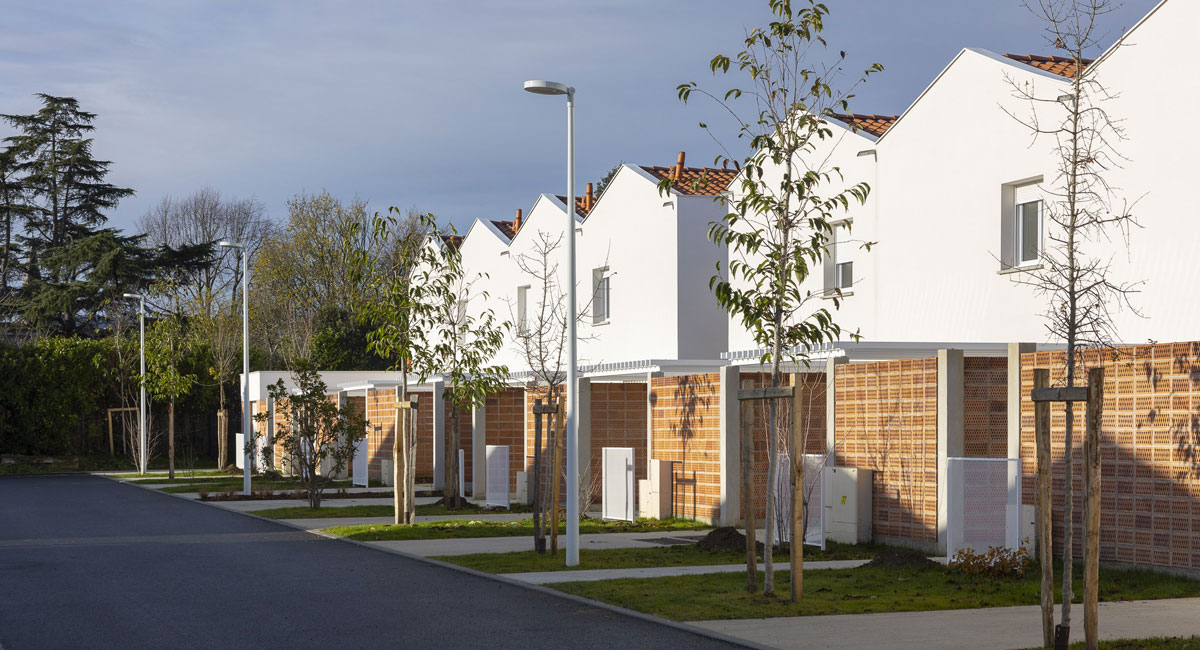
The Nuances operation in Toulouse

